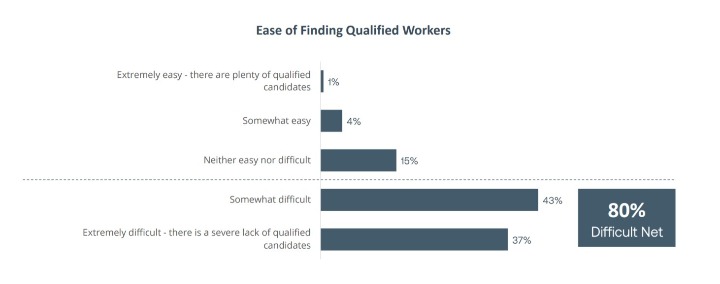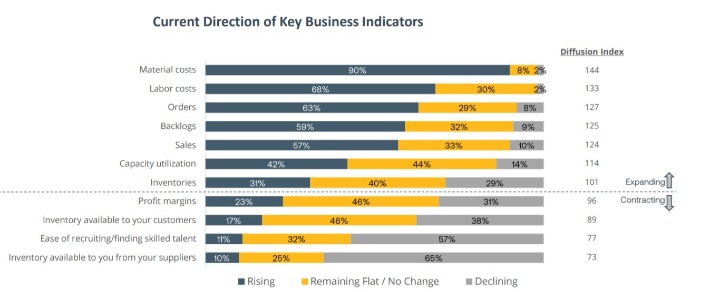Electronics Prices May Not Drop After All - Factories Lack Workers
Chip factories are facing another problem. As one report shows, a shortage of properly trained workers may be starting.

Chip manufacturers are facing more and more difficulties. A recent report by IPC, the international organization for electronics manufacturers, shows that in addition to the huge demand for semiconductors, there is also a shortage of trained personnel. The survey conducted in Asia, Europe and North America shows that 80% of the manufacturers surveyed are having trouble finding employees.

This is a very significant issue, because IDC's recent prediction of possible oversupply of semiconductors by 2023 is called into question. Also important is the aspect of prices of materials needed to produce chips. As many as 90% of manufacturers point to the rising costs of materials, which is due to, among others, the continuing pandemic, which significantly hampers transportation.
There is also the previously mentioned difficulty in finding employees, 89% of factories predicts that the employment problem will not disappear, but will become even more acute. Also in this case the pandemic is to blame, making it much more difficult for skilled workers to travel between countries. The solution is supposed to be to train current workers so that they can work in more demanding positions, but this will obviously increase the cost of hiring them.

Looking at the above graphs, it is difficult to be optimistic about, for example, the issue of graphics cards, which continue to increase their price. In addition, if manufacturers of semiconductors will not be able to organize a trained workforce, then also plans for the creation of new factories become questionable. After all, if there is a shortage of workers in the new factories, then who will replace them? It probably won't be the machines, because they need someone to program them.
- RTX Super on sale sooner than anticipated. Nvidia targets 2025 and adds memory
- RTX 5070 Super and Ti Super leaked. This could be good news for those planning PC upgrades
- „End of Xbox Game Pass.” Players are reportedly canceling their subscriptions in such large numbers that they have overloaded Microsoft's website
0
Latest News
- Butcher's Summit, an impressive free diselpunk FPS, has been released
- Free FPS on Half Life engine gets big update
- On February 3, gaming history could change forever. Red Dead Redemption 2 one step away from a major achievement
- This is not the RPG you expected. Crimson Desert abandons the key elements of the genre, going for original solutions
- Nintendo may unexpectedly beat Sony. State of Play is not to be the only game show awaiting players in February

